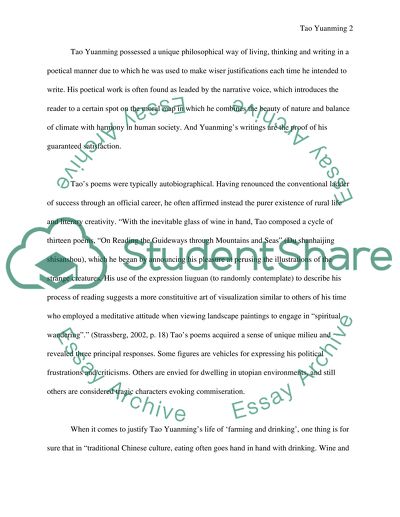Cite this document
(“Chinese Literature: Poet Tao Yuanmings Philosophy About His Poetic Essay”, n.d.)
Chinese Literature: Poet Tao Yuanmings Philosophy About His Poetic Essay. Retrieved from https://studentshare.org/miscellaneous/1506018-chinese-literature-poet-tao-yuanmings-philosophy-about-his-poetic-style-and-lifestyle
Chinese Literature: Poet Tao Yuanmings Philosophy About His Poetic Essay. Retrieved from https://studentshare.org/miscellaneous/1506018-chinese-literature-poet-tao-yuanmings-philosophy-about-his-poetic-style-and-lifestyle
(Chinese Literature: Poet Tao Yuanmings Philosophy About His Poetic Essay)
Chinese Literature: Poet Tao Yuanmings Philosophy About His Poetic Essay. https://studentshare.org/miscellaneous/1506018-chinese-literature-poet-tao-yuanmings-philosophy-about-his-poetic-style-and-lifestyle.
Chinese Literature: Poet Tao Yuanmings Philosophy About His Poetic Essay. https://studentshare.org/miscellaneous/1506018-chinese-literature-poet-tao-yuanmings-philosophy-about-his-poetic-style-and-lifestyle.
“Chinese Literature: Poet Tao Yuanmings Philosophy About His Poetic Essay”, n.d. https://studentshare.org/miscellaneous/1506018-chinese-literature-poet-tao-yuanmings-philosophy-about-his-poetic-style-and-lifestyle.


